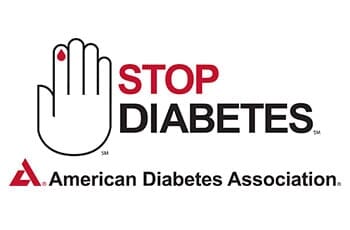What to Expect

What Should My Fasting and Blood Sugar Be?
I wake up (fasting) and before meals? What about after?
For most people with diabetes, the American Diabetes Association recommends a fasting or before-meal blood glucose (or blood sugar) goal of 70-130 mg/dl. One to two hours after eating, a postprandial blood sugar reading at or under 180 mg/dl is recommended.
For most people with diabetes, the American Diabetes Association recommends a fasting or before-meal blood glucose (or blood sugar) goal of 70-130 mg/dl. One to two hours after eating, a postprandial blood sugar reading at or under 180 mg/dl is recommended.
Does a diagnosis of type 2 diabetes mean I will have to go on insulin?
No. People with type 2 diabetes may or may not ever need to take insulin injections, depending on several factors, including the timing of diagnosis. Studies show that if type 2 diabetes is treated early and as blood sugar is controlled, the pancreas is more likely to produce enough insulin longer. A person who lives with type 2 upward of 15 years is unlikely to continue to make sufficient insulin and my need to take it via syringe, pen, or pump.
I was recently diagnosed with type 2 diabetes. Do I need to see an Endocrinologist?
While diabetes is an endocrine disease and falls under the specialty of an Endocrinologist, most people with type 2 diabetes, especially in the early years, can partner with a primary care provider who takes an active interest in their diabetes management. Quite often the diagnosis isn't soon enough to get the disease and its symptoms managed fast enough in which case an Endocrinologist can definitely help. Make sure your doctor keeps up-to-date and provides you with care in sync with current guidelines. Be active in your care and ask questions.
Can I get rid of type 2 diabetes if I stop eating carbs and/or lose a lot of weight?
No, but you can control it. If you have pre-diabetes or were just diagnosed with type 2, losing a lot of weight can put the condition into remission. Weight regain, aging, and the natural progression of type 2 diabetes can bring it back.
What Are The Best Snack Foods for People with Diabetes?
You can never go wrong with vegetables but fresh fruit, small containers or cans of fruit (no syrup), fat-free yogurt, part-skim cheese (sticks, slices, and cubes), sugar-free pudding cups, nuts (any type), whole wheat crackers or pretzels, peanut butter, baby carrots, and 100-calorie snack packs (buy them or create your own). Also, drink plenty of water and no-calorie drinks.
Why is weight loss so important? What’s the best way for a person with type 2 to lose weight?
Weight loss is vital, particularly just after a diagnosis of type 2 or pre-diabetes. Weight loss increases insulin sensitivity, allowing cells to more effectively use the insulin the body continues to make. Losing just 10–20 pounds can produce great benefits. Among them are improved blood sugar, blood pressure and cholesterol levels and possibly taking fewer medications or lower doses. To lose weight slowly and steadily, change your lifestyle. The pounds you keep off over time are the most important to living a long life.
Can I drink alcohol?
Yes, adults with diabetes can drink alcohol and should follow the same guidelines as the general public—an average of up to one drink per day for women and up to two drinks per day for men, with no more than three or four drinks in any single day for women and men, respectively. Drinking more than three drinks per day over time has been shown to make glucose control a challenge.
For people who take insulin or another blood glucose-lowering medication that can cause hypoglycemia, eat some food when drinking alcohol. A cautionary note to people with type 1 diabetes: Significant alcohol intake can cause hypoglycemia a number of hours later, so regularly check blood sugar levels when you drink.
For people who take insulin or another blood glucose-lowering medication that can cause hypoglycemia, eat some food when drinking alcohol. A cautionary note to people with type 1 diabetes: Significant alcohol intake can cause hypoglycemia a number of hours later, so regularly check blood sugar levels when you drink.
Can I get rid of diabetes? Will it ever go away?
Once you are diagnosed with type 1 or type 2 diabetes, you have it for the rest of your life. To stay healthy, keep your blood sugar, blood pressure, and cholesterol under good control. To do so, eat healthy, be physically active, and take your prescribed medications. Also get the tests and checks you need to detect complications early and treat them aggressively.
Is it true that complications of diabetes can be delayed and even prevented?
Yes! Research shows that the earlier your diabetes is diagnosed and the sooner you start to aggressively get your blood sugar, blood pressure, and cholesterol into target ranges, the healthier you can be over the years. To stay healthy and detect any complications early, make sure your health care provider orders all the tests and checks you need. Let your provider know if you have any signs or symptoms of a potential problem. Diabetes complications normally occur when there isn't proper management.
Will I need to be on insulin forever? Why can’t I take pills instead?
If you have type 2 diabetes and were put on insulin, it’s likely you need it to bring your blood sugar down farther than pills could. In this case, you’ll likely need to take insulin injections the rest of your life. If, however, you started taking insulin when you had an infection, needed surgery, or were hospitalized for a medical reason, your need for insulin may be temporary. These situations raise stress, and stress can raise blood sugar levels. When the stress abates, you may be able to taper or stop taking insulin and get back to your previous medication regimen.

